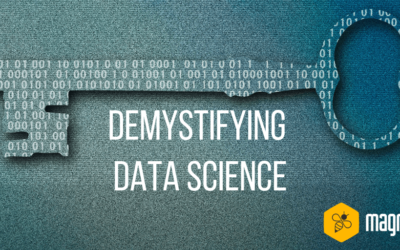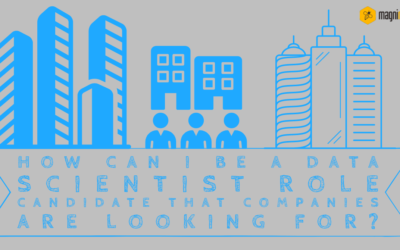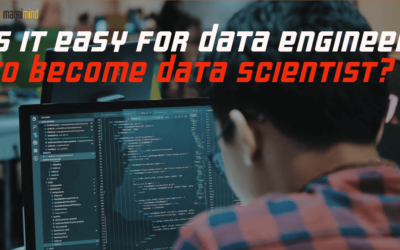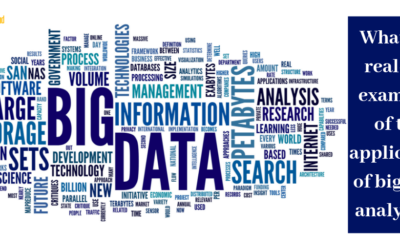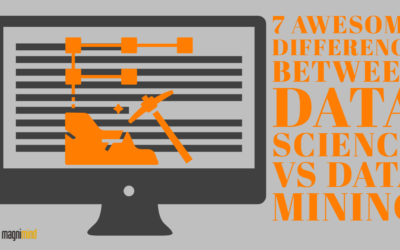It’s a well-known fact that data science is one of the most attractive career options these days, thanks to the hype revolving around the data scientist job position. It has triggered increased interest in the data science field from both working professionals and those entering college. To deal with the increasing demand for data science professionals, a lot of institutions have started offering a data science master’s degree. If you too are planning to obtain such a degree, here’re ten facts you should consider before committing your time, effort, and money.
Data Science Blog

Demystifying Data Science
You may have already heard that data science is a fast-moving, exciting field that pays really well and a numerous number of aspiring candidates are trying to step into this field. All the hypes revolving around this field can trigger some common questions like “What is data science?”, “What are the skills required to enter data science?” etc. To help you establish context, here’s our effort toward demystifying data science. The following discussion should help you make an informed decision.
How Can I Be A Data Scientist Role Candidate That Companies Are Looking For?
Undeniably, data scientist jobs are extremely in demand and this position has become one of the most lucrative career options these days. As a result, recruiters and hiring managers are being flooded with applications. In this scenario, the expectation revolving around the perfect data scientist role candidate has changed to a great extent and businesses have started to understand the ability to train a machine learning model is just a small part of what it actually takes to be a successful professional in data science. So, what should you do to become that perfect data scientist role candidate? Let’s have a look.
What Kind Of Work Product Do Data Scientists Produce?
You may already know that the power of data science originates from a robust understanding of a wide range of skills including algorithms and statistics, programming, communication skills, and many other skillsets. Put simply, data science is all about applying the core skills in a systematic and disciplined manner.
Is It Easy For Data Engineer To Become Data Scientist?
These days, the business world runs entirely on data and none of the companies can survive without data-driven strategic plans and decision making. The field of data science is quite broad and contains a significant number of job positions including data scientist and data engineer. If you want to step into the data science field, it’s crucial to understand the differences between a data scientist and data engineer to identify whether it’d be possible for you switch positions without investing much effort and time.
What Are Real-life Examples Of The Application Of Big Data Analytics?
These days, as the world is getting more and more connected through different types of digital devices, a massive volume of data is getting emanated from a huge number of digital sources. Businesses and organizations from across the globe are leveraging the power of this data and putting it to their advantages. Big data analytics is performed to identify correlations, hidden patterns, and to derive actionable insights that can help businesses make informed decisions.
Data Science vs. Data Mining
As organizations and businesses have started to realize that there’s a huge value hiding in the massive amount of data they capture on a regular basis, they’ve been trying to employ different techniques to realize that value. While the ultimate goal is to produce actionable insights from that data, the tech world is getting filled with a significant number of technical terms. And among all these terms, probably the most talked-about terms are data science and data mining. Though some people use them interchangeably, they come with significant differences. Here’re seven most prominent differences between data science and data mining.
How Do You Build A Data Science Portfolio?
There’re a lot of people trying to step into the field of data science. Unfortunately, many of them often overlook one of the most critical aspects of landing up a good job in the field – the importance of building a strong data science portfolio. While having enough knowledge about different data science techniques and a good number of certifications are surely critical, unless you have a strong data science portfolio, your chances of coming under the radar of recruiters aren’t extremely high. Here, we’ve jotted down the key aspects of building a solid data science portfolio that would make your journey a tad easier.
The Most Powerful Idea In Data Science
In the tech fields these days, there’re a huge number of people trying to embark on different types of new paths that eventually lead to having a career in the field of data science. Undeniably, the goal is a worthy one, but it’s also important to have a clear idea about the key goal of data science. In this post, we’ll be trying to explore it. Let’s start the discussion.


